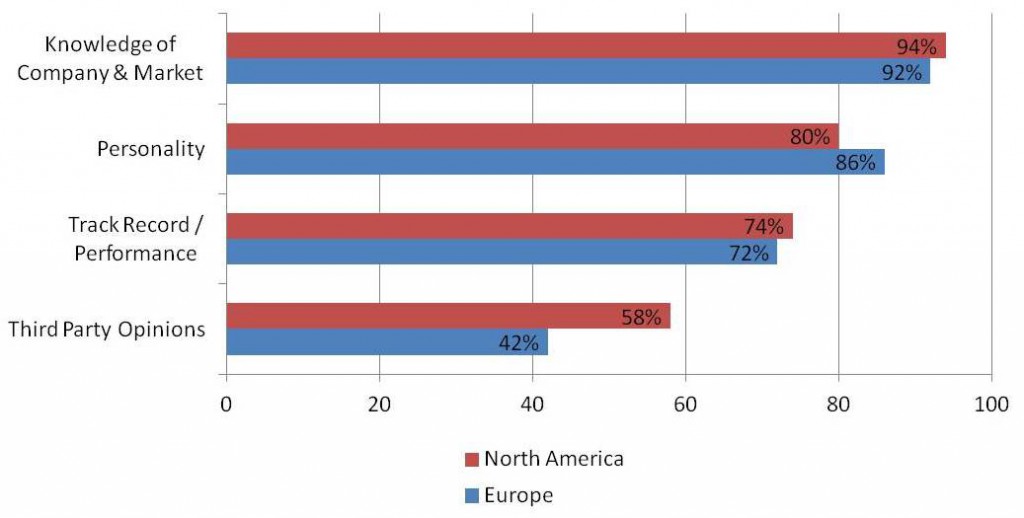880 W. Long Lake Road • Suite 225 •
Troy, Michigan 48098
• P: 248.269.1122 •
E: bianchipr@bianchipr.com
When a reporter evaluates a CEO during a media interview, do you know what the most important factors being considered are?
According to survey results shared by our partners around the world in the Public Relations Global Network — PRGN (www.prgn.com) — it often depends on the journalist’s nationality.
The PRGN survey of journalists in Europe and North America showed that overall, most journalists rank the CEO’s knowledge of the company and its market as the top factor. Next came the CEO’s personality, then the CEO’s track record of performance, and finally, third-party opinions by outsiders of the CEO. 
However, when you look at practices in individual countries, the rankings become much more meaningful and useful. For example:
• In Hungary, Finland and Germany, the top assessment consideration was the CEO’s personality, followed by the CEO’s knowledge of the company and market;
• In Denmark, while the most important assessment factor also was the CEO’s personality (100 percent), the outside third-party opinions also play a critical role;
• In Italy, reporters rated the CEO’s personality just as important as the CEO’s knowledge of the company and its market, and the CEO’s educational background is also cited as a key assessment criterion; and
• In France, in-depth company and market knowledge was the top choice, but the CEO’s personal life and education are also key evaluation factors.
So, what can a PR professional do to optimize the journalist’s assessment in preparation for the next CEO media interview? The PRGN results offer three tips:
1) Prior to the media interview, seek to discover what the reporter already knows about the CEO and what sources the journalist may have already contacted. And if appropriate, provide the journalist with some other sources and background materials that may help round out or shift the perception.
2) Review recent articles and interviews with other corporate executives the reporter has written, to better understand what type of information was used and what criteria most impacted the coverage.
3) Obtain counsel from a local PR firm that lives and breathes the culture in that specific market, and if possible, one that knows the specific journalist, so you gain the advantage of the experience and expertise in local journalistic customs, approaches, and preferences. (Through PRGN, Bianchi PR can bring you access to local, senior PR experts in 50 key markets around the world that can provide this type of invaluable insight.)